Needs Analysis of Content-Differentiated Digital Teaching Materials in Learning Negotiation Text Writing
Abstract
This study aims to determine the need for content-differentiated digital teaching materials in learning to write negotiation texts. The focus of this research is to conduct a needs analysis based on the demands of the independent curriculum, previous research literature studies, classroom learning systems, and the needs of teachers and students. The grand design of the method used is qualitative method. Quantitative methods are used only to support quantitative data analysis in the needs analysis of students and teachers collected through questionnaires. The results showed that based on the needs analysis based on curriculum demands, needs based on analysis of previous research literature studies, analysis of learning needs in classrooms directly observed, and analysis of teacher and student needs, the development of differentiated digital teaching materials in learning to write negotiation texts is an urgent need in education.
References
Clark, R. C., & Mayer, R. E. (2016). E-learning and the science of instruction: Proven guidelines for consumers and designers of multimedia learning. John Wiley & Sons.
Eviyana, K., Hilal, I., & Karomani, K. (2014). Pembelajaran menulis teks negosiasi siswa kelas X SMA N 1 Pringsewu.
Gusman, F., Apriliya, S., & Mulyadiprana, A. (2021). Digital flipbook-based teaching material for writing poetry in elementary school. Indonesian Journal of Primary Education, 5(1), 70-81.
Hattie, J. (2012). Visible learning for teachers: Maximizing impact on learning. Routledge.
Kemdikbudristek. (2022). Panduan Pembelajaran dan Asesmen: Pendidikan Anak Usia Dini, Pendidikan Dasar, dan Menengah. https://kurikulum.kemdikbud.go.id/wp-content/uploads/2022/06/Panduan-Pembelajarn-dan-Asesmen.pdf
Keputusan Kepala BSKAP Nomor 009/KR/2022 tentang Dimensi, Elemen, dan Subelemen Profil Pelajar Pancasila pada Kurikulum Merdeka. https://kurikulum.kemdikbud.go.id/kurikulum-merdeka/
Keputusan Kepala BSKAP Nomor 033/H/KR/2022 tentang PerubahanAtas Keputusan Kepala BSKAP Nomor 008/KR/2022 tentang CapaianPembelajaran pada Pendidikan Anak Usia Dini, Jenjang Pendidikan Dasar, dan Jenjang Pendidikan Menengah pada Kurikulum Merdeka. https://kurikulum.kemdikbud.go.id/kurikulum-merdeka/
Kisaran, S., & Manurung, R. N. N. (2022). Pegembangan bahan ajar menulis teks negosiasi berbasis pengalaman pada siswa kelas X SMK Swasta As.
Musaddat, M., [et al.]. (2021). Challenges of digital learning implementation in Indonesia during the COVID-19 pandemic. IOP Conference Series: Materials Science and Engineering, 1051(1), 012008.
Rogers, E. M. (2003). Diffusion of innovations (5th ed.). Free Press.
Tomlinson, C. A. (2017). The differentiated classroom: Responding to the needs of all learners. ASCD.
Utama, D., [et al.]. (2023). Implementation of Indonesian language teaching materials based on virtual tour to improve digital literacy of high school students. Journal of Language and Literature, 2(1), 45-56.
Utami, R., & Atmojo, E. J. (2021). Digital transformation in Indonesian education: Challenges and opportunities. Journal of Educational Management and Leadership, 5(1), 24-34.
Widiastuti, S., [et al.]. (2022). Development of differentiated teaching materials on opinion article writing for senior high school students. Indonesian Journal of Language Education and Literature, 1(1), 12-23.
Widiastuti, Y., Rifki, M., & Arief, N. F. (2023). Pengembangan bahan ajar berdiferensiasi pada materi menulis artikel untuk siswa SMA. NOSI, 11(2).
Yunarida, A., Harjito, H., & Hartini, H. (2020). Pengembangan bahan ajar menulis teks negosiasi di SMK Kota Semarang.

This work is licensed under a Creative Commons Attribution-ShareAlike 4.0 International License.
Authors who publish with Jurnal Ilmiah Lingua Idea agree to the following terms:
- Authors retain copyright and grant the journal right of first publication with the work simultaneously licensed under a Creative Commons Attribution License (CC BY-SA 4.0) that allows others to share the work with an acknowledgment of the work's authorship and initial publication in this journal.
- Authors are able to enter into separate, additional contractual arrangements for the non-exclusive distribution of the journal's published version of the work (e.g., post it to an institutional repository or publish it in a book), with an acknowledgment of its initial publication in this journal.
- Authors are permitted and encouraged to post their work online (e.g., in institutional repositories or on their website) prior to and during the submission process, as it can lead to productive exchanges, as well as earlier and greater citation of published work.


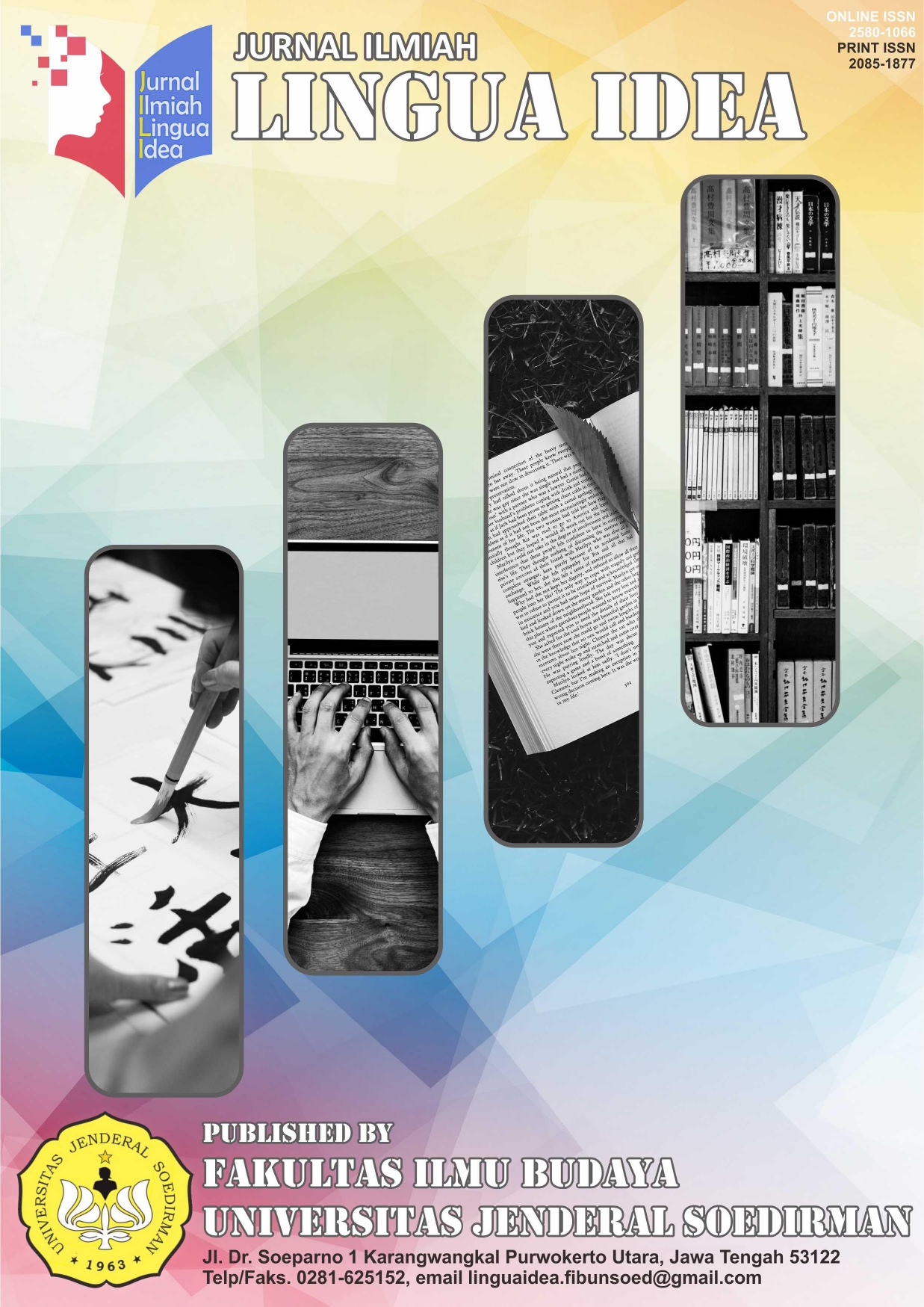
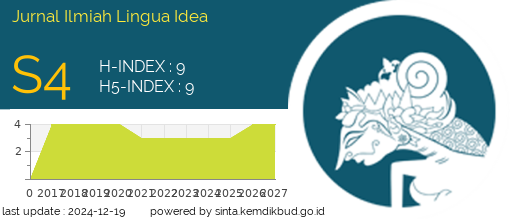


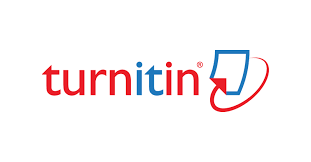














.png)
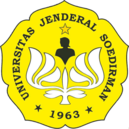
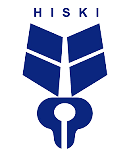
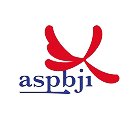
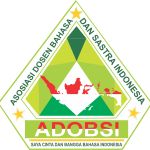
_.png)


